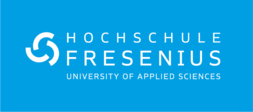Überblick über den Studiengang
Curriculum
This program integrates a strong foundation in business administration and economics with specialized studies in e-commerce and logistics. Alongside core coursework, you'll enhance your intercultural and language competencies while having the flexibility to tailor your education through elective modules and practical experiences like internships or studying abroad.
Structured around the M-A-P-S framework:
- Markets: Explore the fundamentals of the e-commerce and logistics landscape.
- Application: Delve into practical aspects such as IT solutions and operational management within e-commerce.
- Progress: Advance your understanding with strategies for optimizing e-commerce enterprises, focusing on portfolio design and digital channel management.
- Strengthen: Conclude your studies by mastering techniques to fortify online retail and supply chain management, including digital marketing and service relationships.
In the customizable third semester of your Master’s program in E-Commerce & Logistics (M.Sc.), you’ll deepen your individual interests and build your academic profile by choosing elective modules such as
- Strategic Marketing & Brand Management
- Corporate Finance
- Sustainability Management & CSR in a Global Context
- Consumer Behavior & Psychology
Alternatively, you can opt for an internship or a semester abroad to further enrich your academic experience.
Admission Requirements
Admission to the Master’s program in E-Commerce & Logistics (M.Sc.) at Hochschule Fresenius requires:
- A Bachelor’s degree with a minimum of 180 credit points.
- At least 60 credit points in business or economics during your Bachelor's studies.
- Proficiency in English equivalent to Level B2 of the European Framework of Reference for Languages.
If you haven't completed your Bachelor’s yet, you can begin your Master’s while wrapping up your Bachelor’s, provided you've attained at least 80 percent of the credit points by enrollment.
For further details, please contact our Study Advice Service.
Career prospects
Upon completing the Master’s program, you'll possess a robust understanding of business and economics, coupled with specialized expertise in e-commerce, online retailing, and logistics management. This equips you for various career opportunities, including roles within:
E-commerce sector
- E-Commerce retailer
- Online marketplaces
- Platform provider
- Global import and export agencies
- Online payment services
- IT-solution provider
- Online marketing agencies (SEA/ SEO)
Logistics sector
- Integrated logistics service providers (3PL, 4PL)
- Warehousing firms
- Transportation companies
- Global forwarding firms
- Data analytics
Additionally, pursuing a doctorate after completing your Master’s degree is a viable option.
Practical relevance
Practical learning is central to our approach at Hochschule Fresenius. In the Master’s program in E-Commerce & Logistics (M.Sc.), you'll engage in hands-on activities guided by industry experts. This includes project work, case studies, optional internships, as well as interactive learning methods, guest lectures, workshops, and excursions, ensuring a well-rounded educational experience aligned with industry demands.
zurück zur Hochschule








